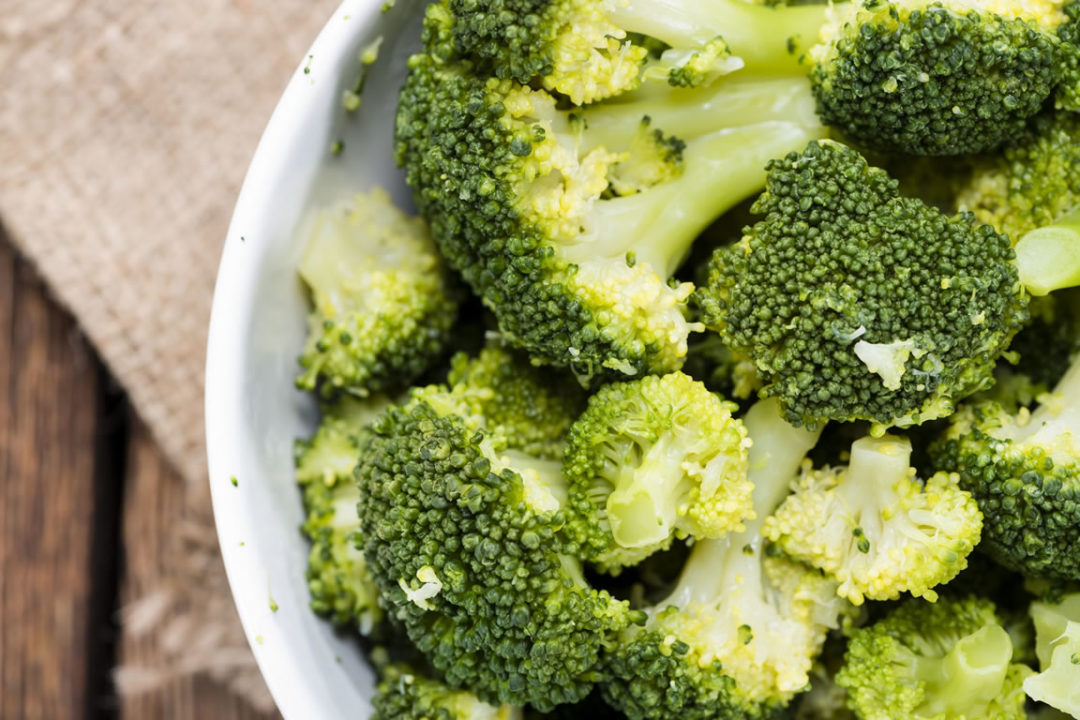 We have all heard about the value of cruciferous vegetables like broccoli, but what do we really know? This is also a good example of how a beneficial nutrient is developed.
We have all heard about the value of cruciferous vegetables like broccoli, but what do we really know? This is also a good example of how a beneficial nutrient is developed. Anthony Thomas is a research scientist and he communicates like a scientist and that can make it a little challenging. That is why I have highlighted some of the terms you are going to hear. It is likely you are not familiar with some of the nutritional compounds he discusses.
Anthony Thomas is a research scientist and he communicates like a scientist and that can make it a little challenging. That is why I have highlighted some of the terms you are going to hear. It is likely you are not familiar with some of the nutritional compounds he discusses.It is also interesting because it is a good example of the restrictions that are placed on supplement manufacturers. Supplement makers CANNOT discuss nutrients as treatments, prevention or cures for disease. We can only speak to the structure and function in the body. And while this is the actual way things work in the body, it makes it hard to explain the ultimate benefit, especially when those nutrients are being studied and used to “treat disease.”
 So as a consumer it is important for you to learn the language of nutritional benefits so you can better understand how the amazing nutrients can benefit you. That’s another reason for you to explore and become familiar with the science. You can begin by searching “sulforaphane” at PubMed. I found almost 1400 studies.
So as a consumer it is important for you to learn the language of nutritional benefits so you can better understand how the amazing nutrients can benefit you. That’s another reason for you to explore and become familiar with the science. You can begin by searching “sulforaphane” at PubMed. I found almost 1400 studies.About Sulforaphane (excerpt from Jarrow.com): Cruciferous vegetables (Brassica oleracea spp.), such as broccoli, are associated with
 antioxidant and cellular protection in part because they are sources of sulforaphane glucosinolate (precursor nutrient) and myrosinase (enzyme) which together produce sulforaphane(a powerful, beneficial phytochemical). In extensive studies, sulforaphane
antioxidant and cellular protection in part because they are sources of sulforaphane glucosinolate (precursor nutrient) and myrosinase (enzyme) which together produce sulforaphane(a powerful, beneficial phytochemical). In extensive studies, sulforaphane has been demonstrated to be a potent inducer of Phase 2 detoxifying enzymes and to be a protector of DNA.
has been demonstrated to be a potent inducer of Phase 2 detoxifying enzymes and to be a protector of DNA. Steve Lankford is the host of HealthQuestPodcast.com. Steve has over 40 years of experience in the natural products industry. His passion is helping others develop nutritional programs that work. At HealthQuestPodcast.com, Steve interviews the experts in the fields of science and nutrition. His in depth explorations and consumer friendly style are designed help listeners learn about the science of nutrition. His guests are some of the most respected experts in the natural products industry.
Steve Lankford is the host of HealthQuestPodcast.com. Steve has over 40 years of experience in the natural products industry. His passion is helping others develop nutritional programs that work. At HealthQuestPodcast.com, Steve interviews the experts in the fields of science and nutrition. His in depth explorations and consumer friendly style are designed help listeners learn about the science of nutrition. His guests are some of the most respected experts in the natural products industry.To learn more, visit HealthQuestPodcast.com.
For more podcasts, view the Heath Quest Show List
NOTE: The statements presented in this podcast should not be considered medical advice or a way to diagnose or treat any disease or illness. Dietary supplements do not treat, cure or prevent any disease. Always seek the advice of a medical professional before adding a dietary supplement to (or removing one from) your daily regimen. WholeFoods Magazine does not endorse any specific brand or product.
Posted in WholeFoods Magazine online 12/30/2016









